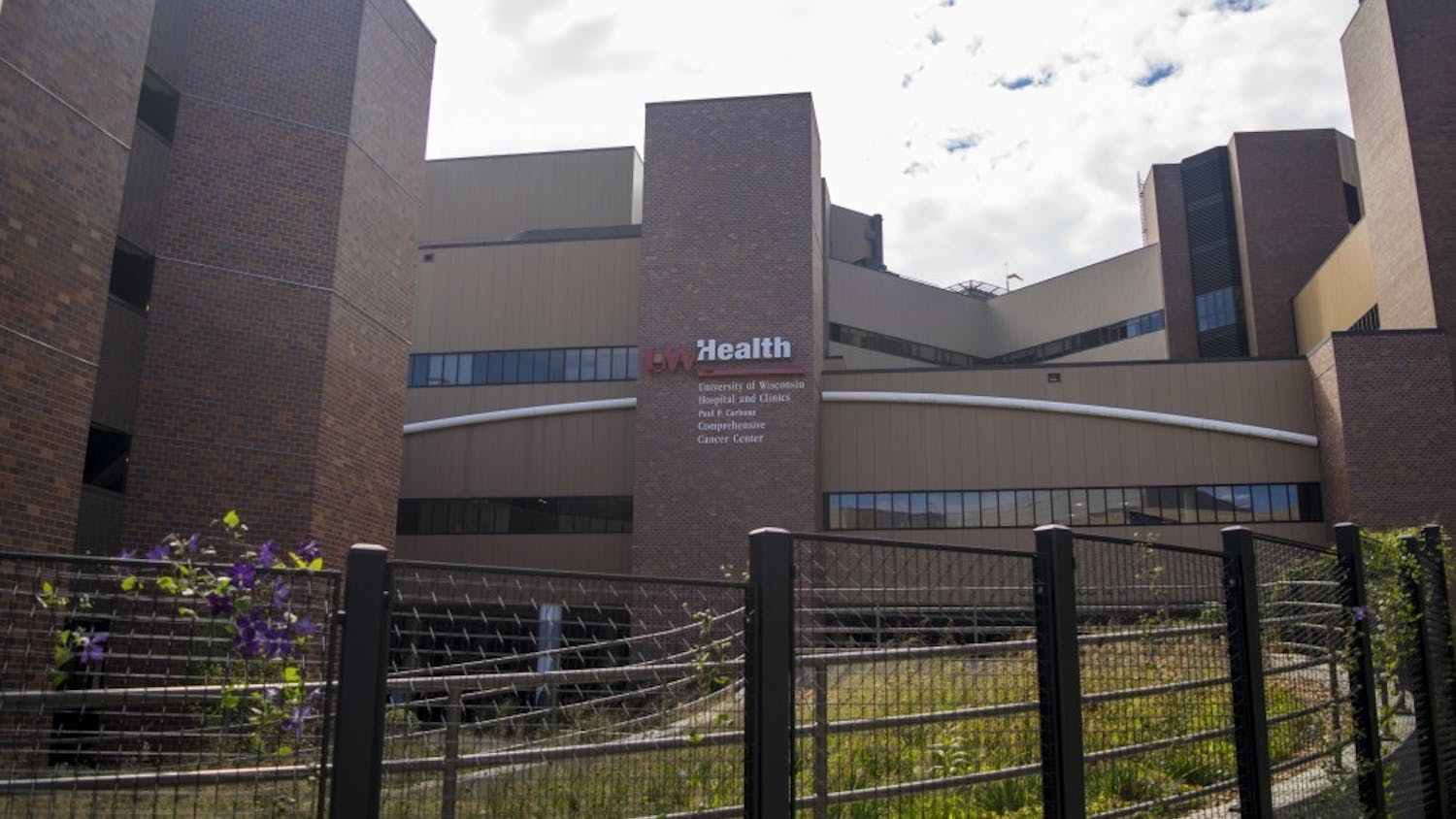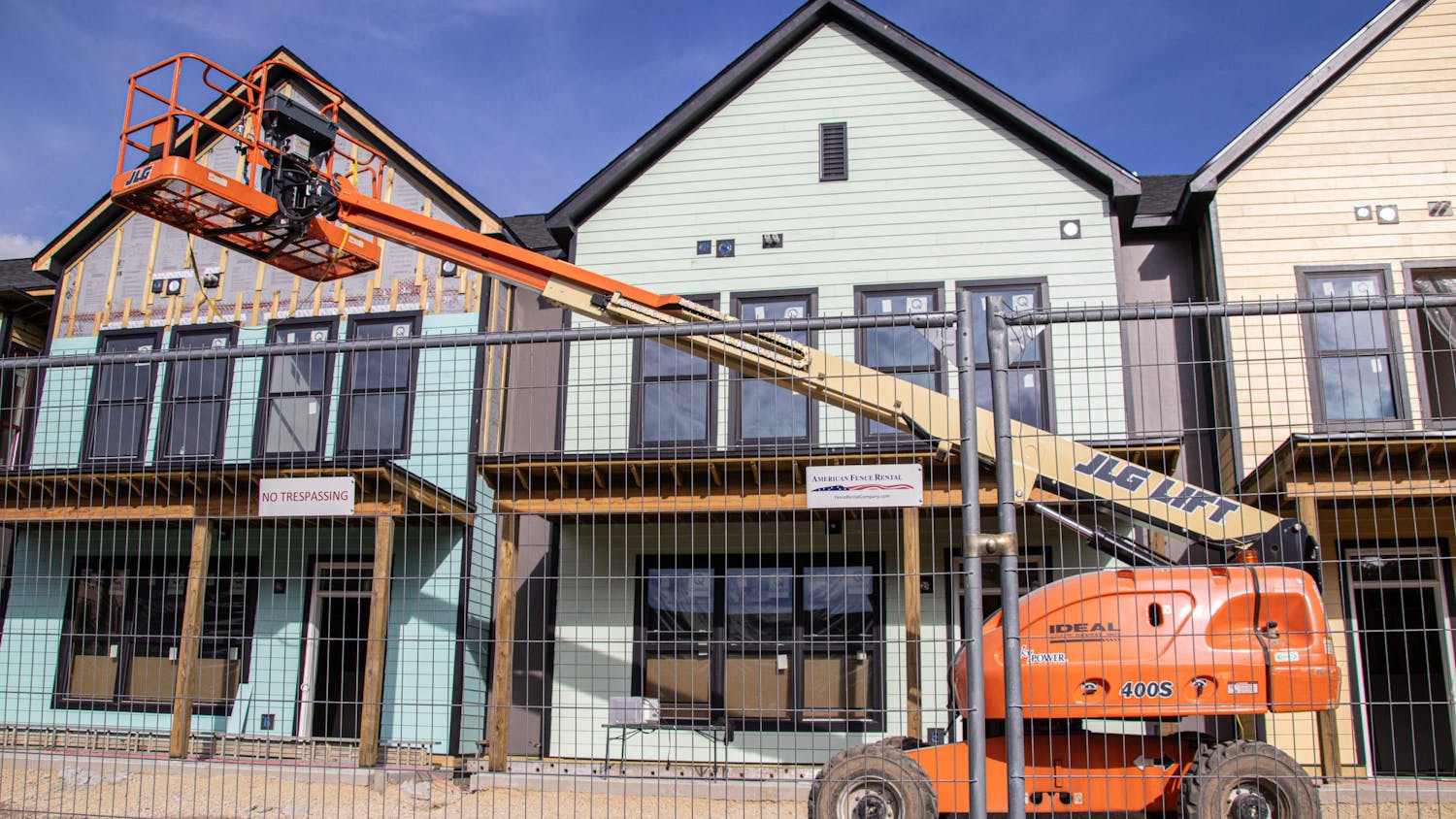When the State Building Commission failed to recommend any of the 80 individual projects outlined in Gov. Tony Evers’ budget, people across the UW System expressed concern over the future of buildings on their campuses.
The majority of the funds in Evers’ budget set aside for UW System projects — nearly $900 million — would come from state taxpayer-supported borrowing, while another approximately $393 million would be funded through program revenue borrowing.
Proposed projects at UW-Madison include a $59 million renovation to Sellery Residence Hall, $128 million expansion and renovation of the veterinary medicine teaching hospital, $126 million facility replacing the Natatorium, $78 million renovation to Camp Randall Stadium and a $48 million addition to the Kohl Center.
Major UW System projects include a new UW-Milwaukee chemistry building, phase two of a construction project on a UW-La Crosse science center and System-wide renovations and technology upgrades as well as utility improvements.
After the vote on the budget ended with none of the projects receiving recommendations, UW System President Ray Cross said in a statement Wednesday this result does not mean there isn’t a need for System renovations and they will continue to make a case for the funding.
“Over 60% of our buildings are between 45 and 70 years old,” Cross said. “The risks to safety, to our maintenance costs, and to Wisconsin’s ability to attract and retain students are only growing.”
In addition to aging facilities, some programs face problems with overcrowding, like UW-Madison’s veterinary hospital. The proposed renovation in Evers’ plan would address concerns with the original building, which was designed to serve 12,000 patients annually but now sees more than 26,000, according to the hospital’s expansion campaign website.
The expansion would double the size of the veterinary hospital and triple the size of the infectious disease research laboratory space, among other improvements, Publications and Media Relations Manager Meghan Lepisto said in an email.
“A new facility is essential for the school to be able to provide the best care possible for thousands more animal patients from all across Wisconsin and the United States, to train the next generation of veterinary medical professionals, and to continue to lead the way in critical research that improves both animal and human health,” Lepisto said.
The $128 million for the expansion and renovation could only come from the legislature, Lepisto said, but School of Veterinary Medicine Dean Mark Markel remains confident.
The School of Veterinary Medicine provides tours of the current facilities for members of legislature, which in March included members of the Joint Finance Committee, where the budget sits now. Markel said the School of Veterinary Medicine will continue to work with legislators from both parties to ensure the hospital receives enough money for the expansion project.
Also remaining optimistic is Scott Schumacher, the associate director of planning and construction at UW-La Crosse. The university hopes to receive $83 million for the second phase of construction on Prairie Springs Science Center, which plans to tear down the existing science building and construct a 148,000 square foot structure for the rest of the science program’s needs, according to the center’s planning website.
While phase one of construction created lab space for students in Prairie Springs Science Center, many faculty still have their offices in the old building, which was built in 1965, Schumacher said.
If the budget for this project doesn’t pass, it will affect all 6,000 science students at UW-La Crosse to some degree. Nevertheless, Schumacher said the school remains optimistic.
“We're disappointed that it did not gain recommendation, but we're still patient and confident that it could still move ahead as part of the budget even though it wasn't initially recommended by the building commission,” Schumacher said. “The worst case would be we would need to wait for the next biennium, but we're confident that we've put together a good proposal and that it will eventually get support.”
The budget will face the Joint Committee on Finance, which meets April 5 to hear public comment on the governor’s budget.






